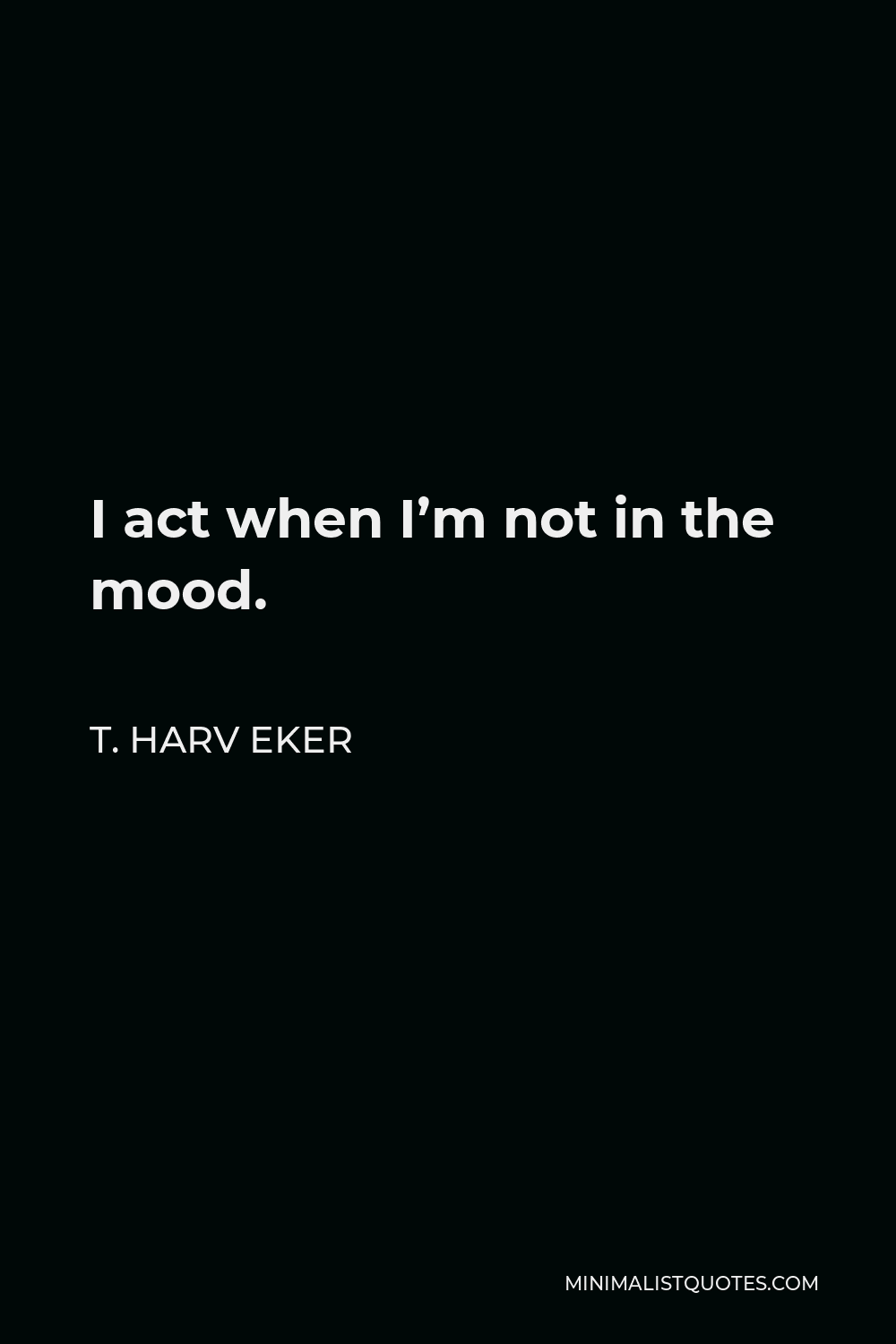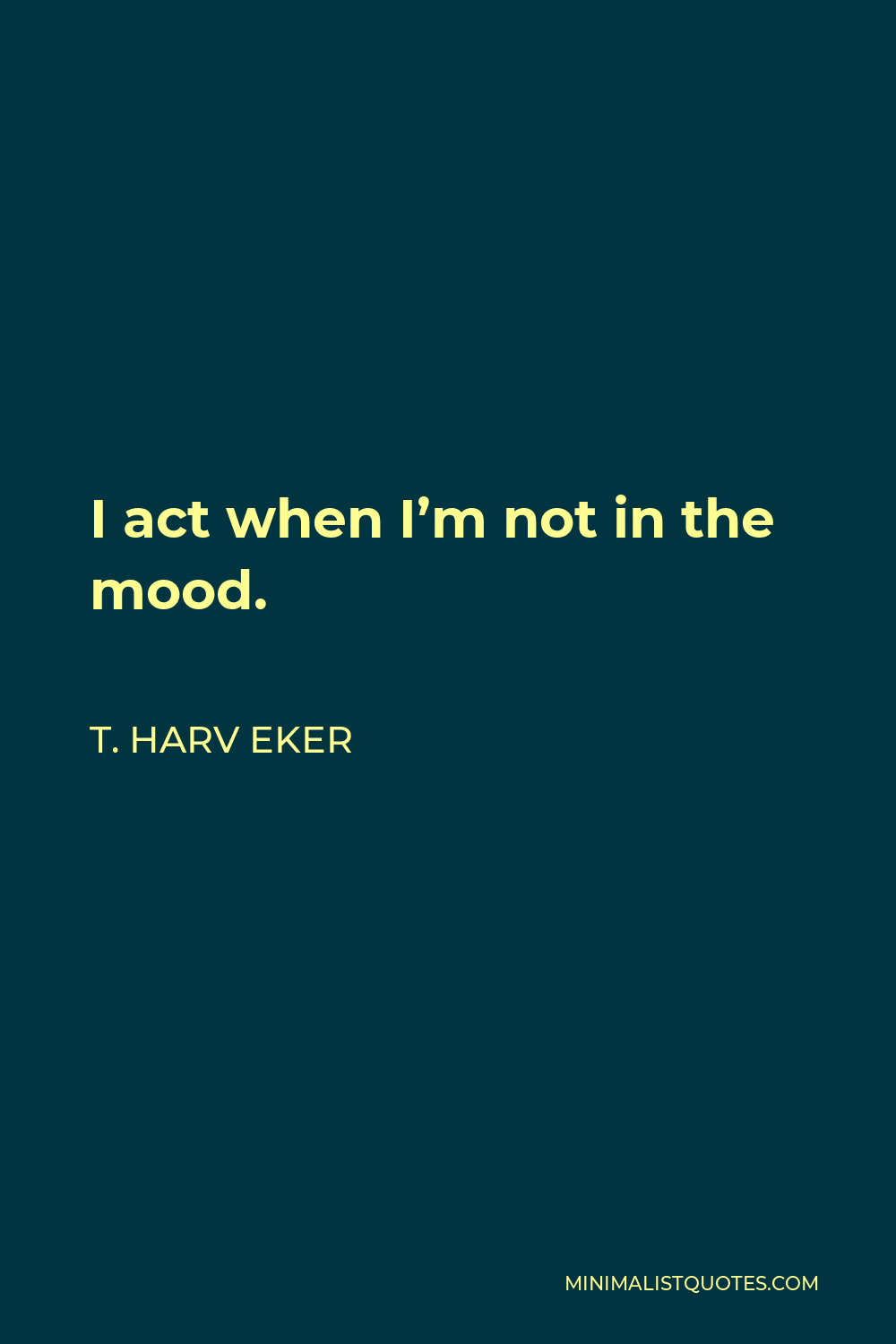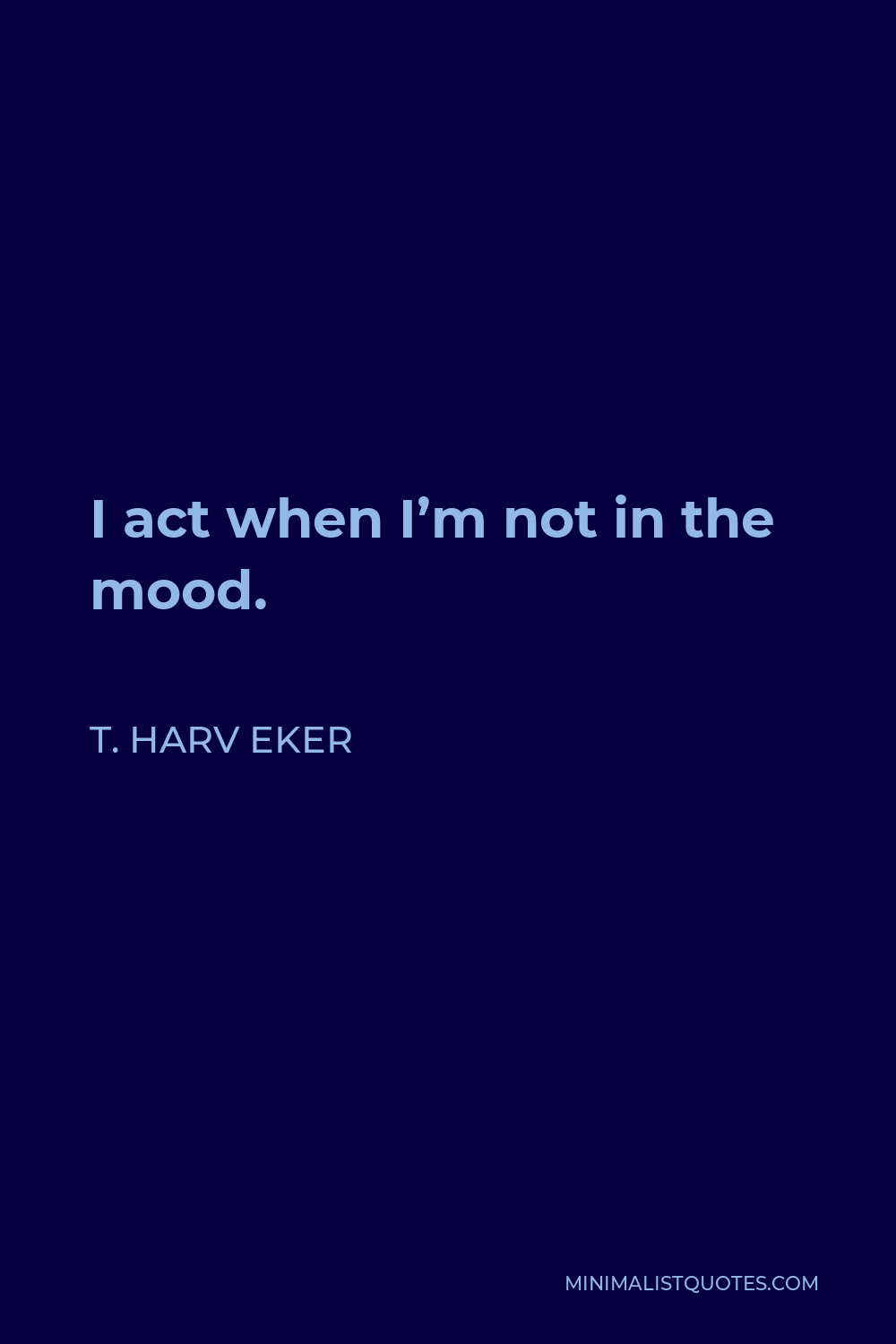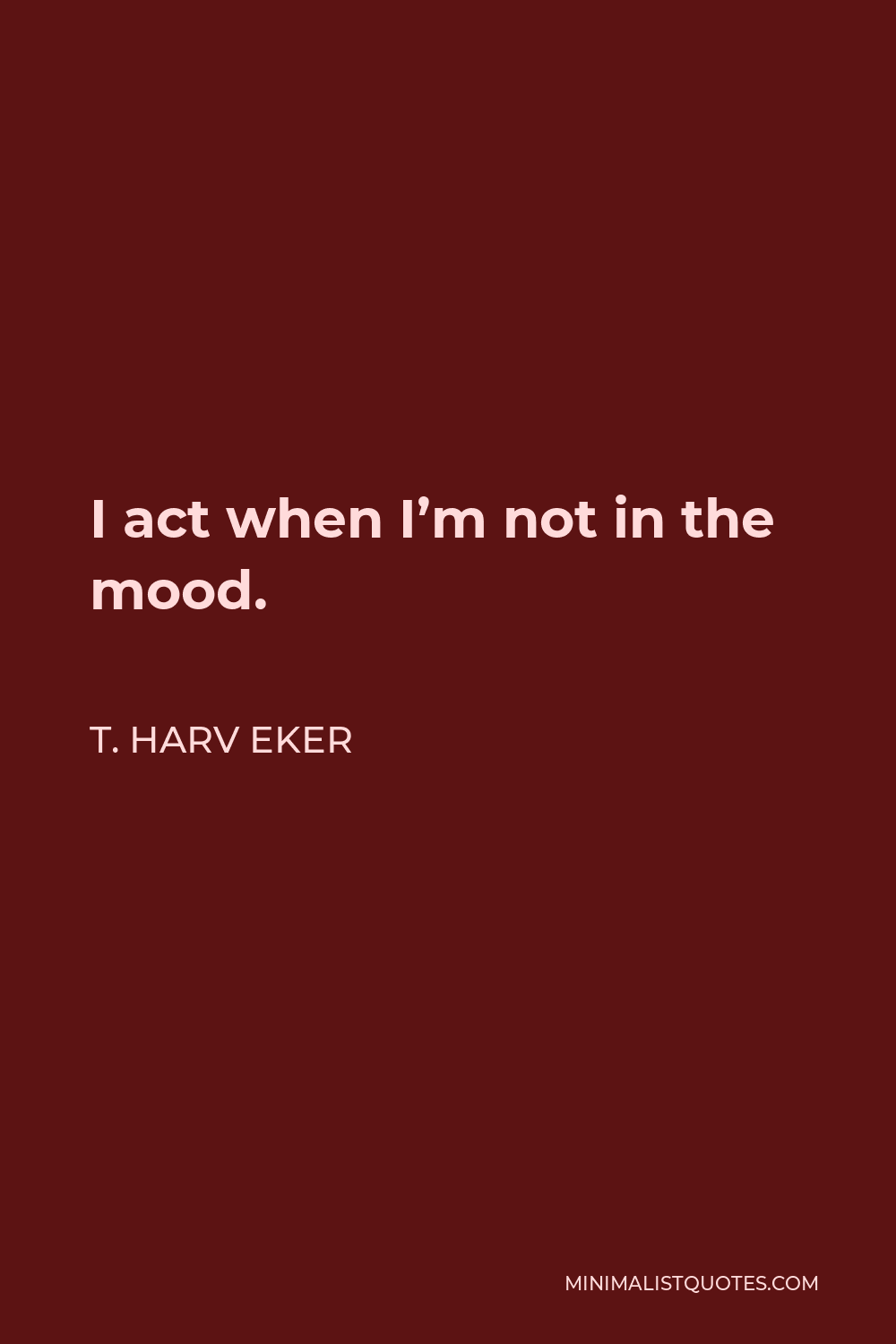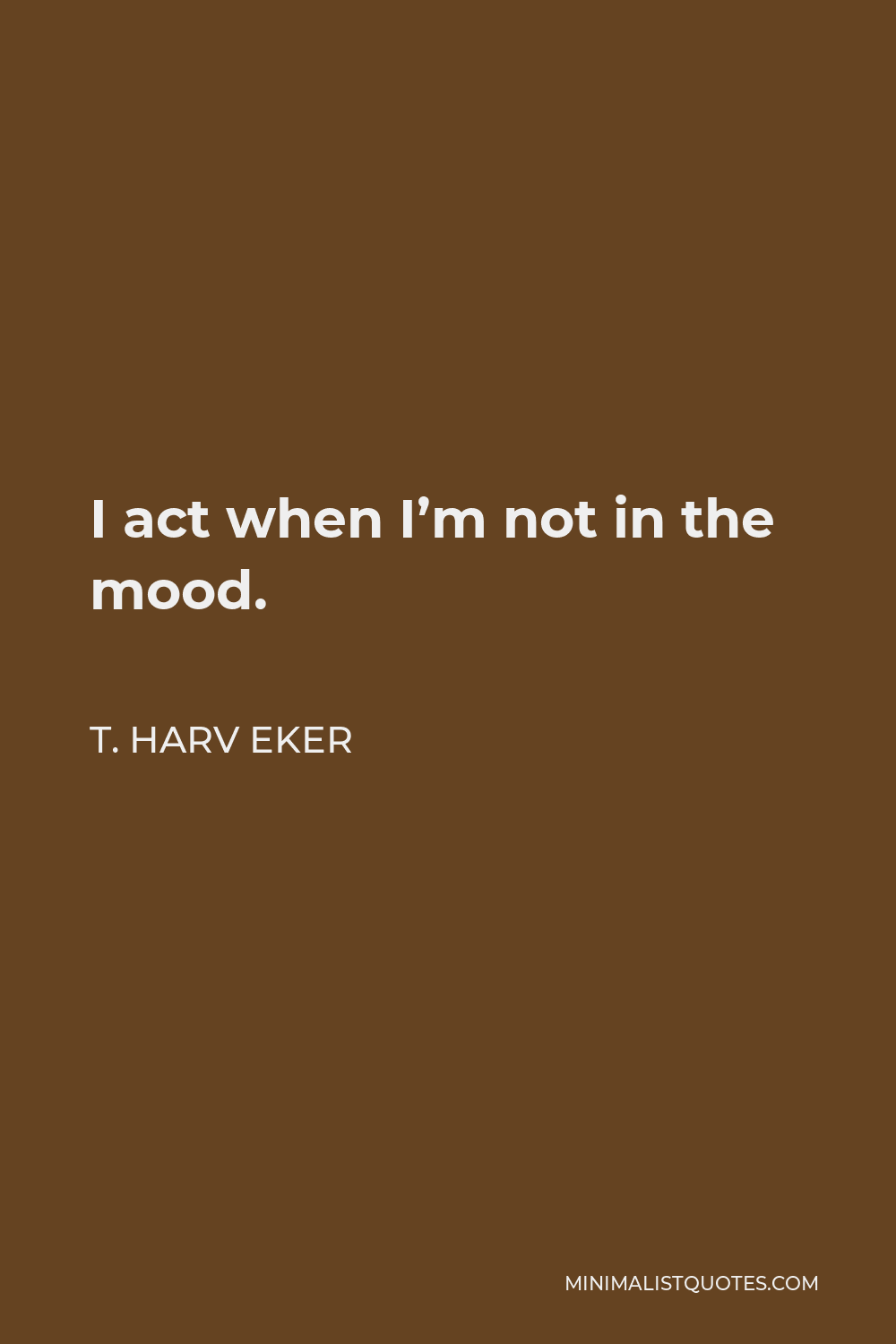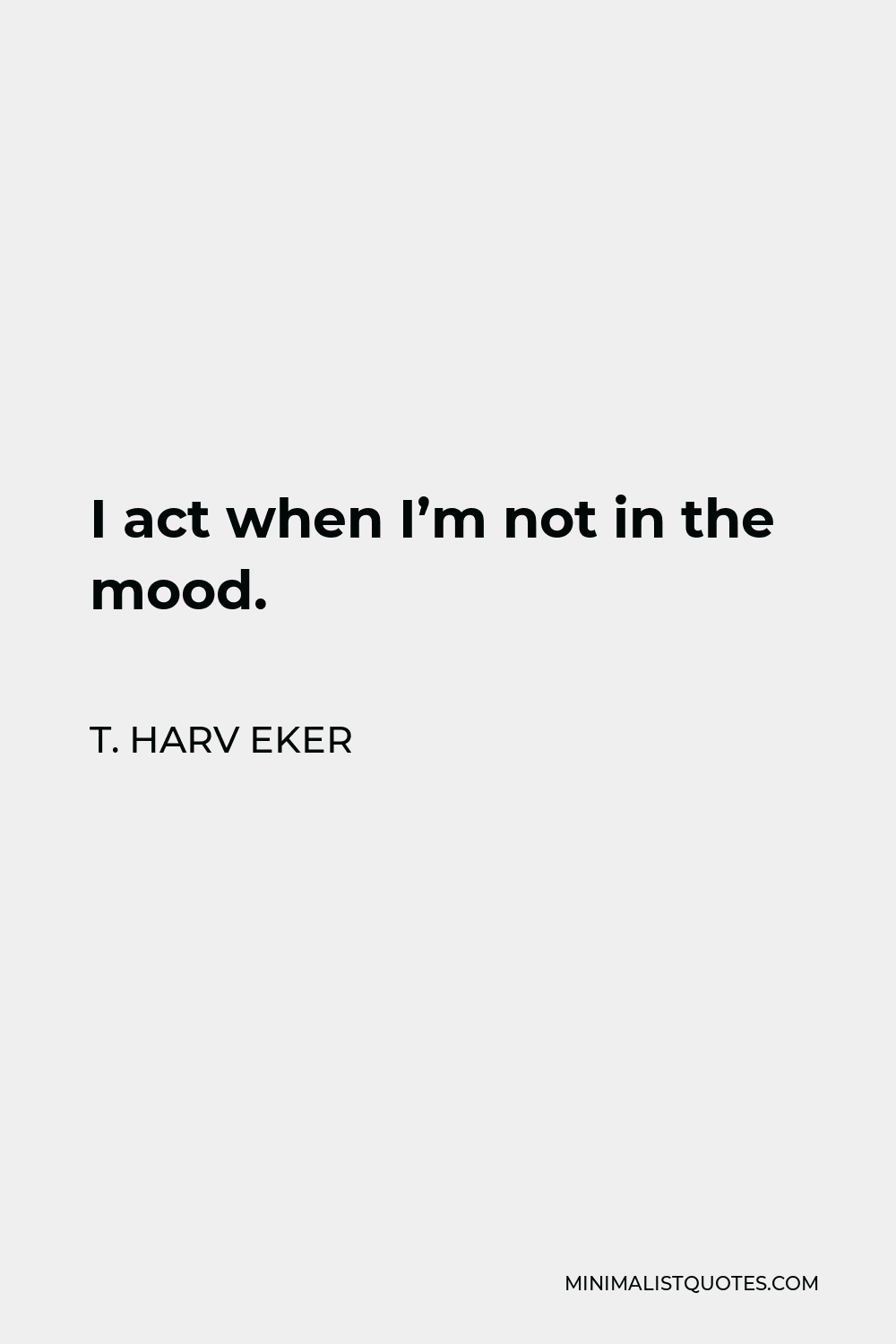If you want to make a permanent change, stop focusing on the size of your problems and start focusing on the size of you!
T. HARV EKERI act when I’m not in the mood.
More T. Harv Eker Quotes
-





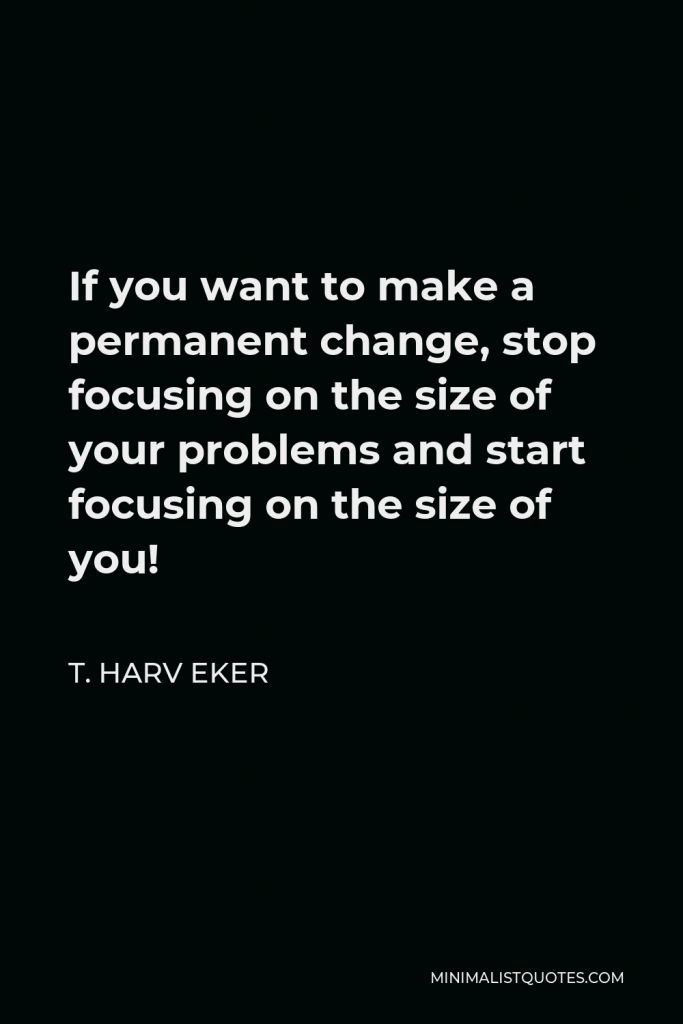

-





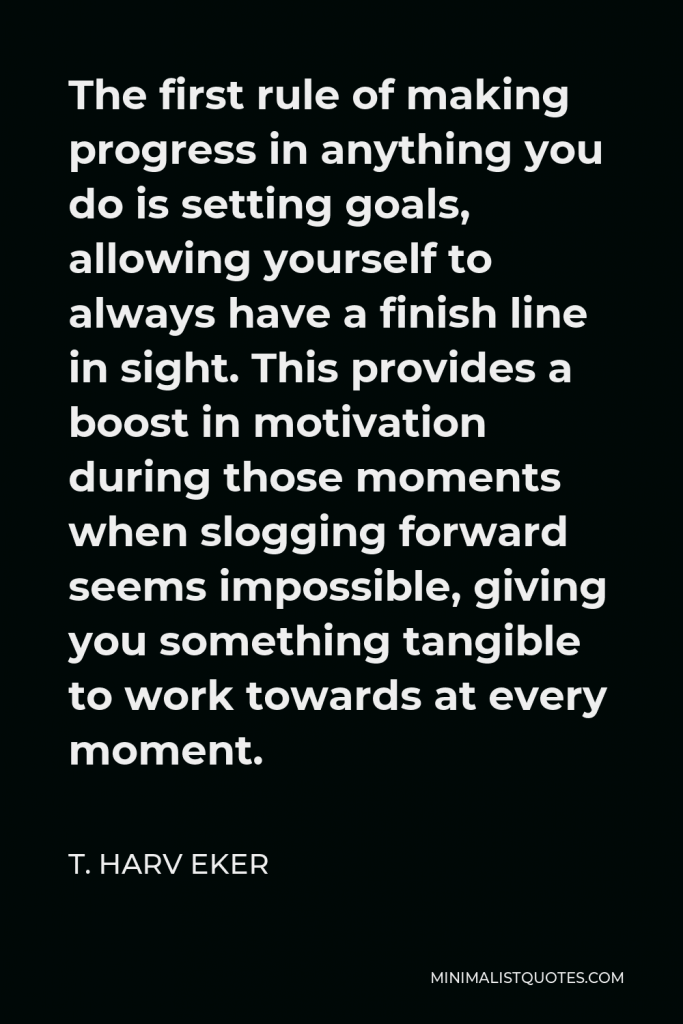

The first rule of making progress in anything you do is setting goals, allowing yourself to always have a finish line in sight. This provides a boost in motivation during those moments when slogging forward seems impossible, giving you something tangible to work towards at every moment.
T. HARV EKER -





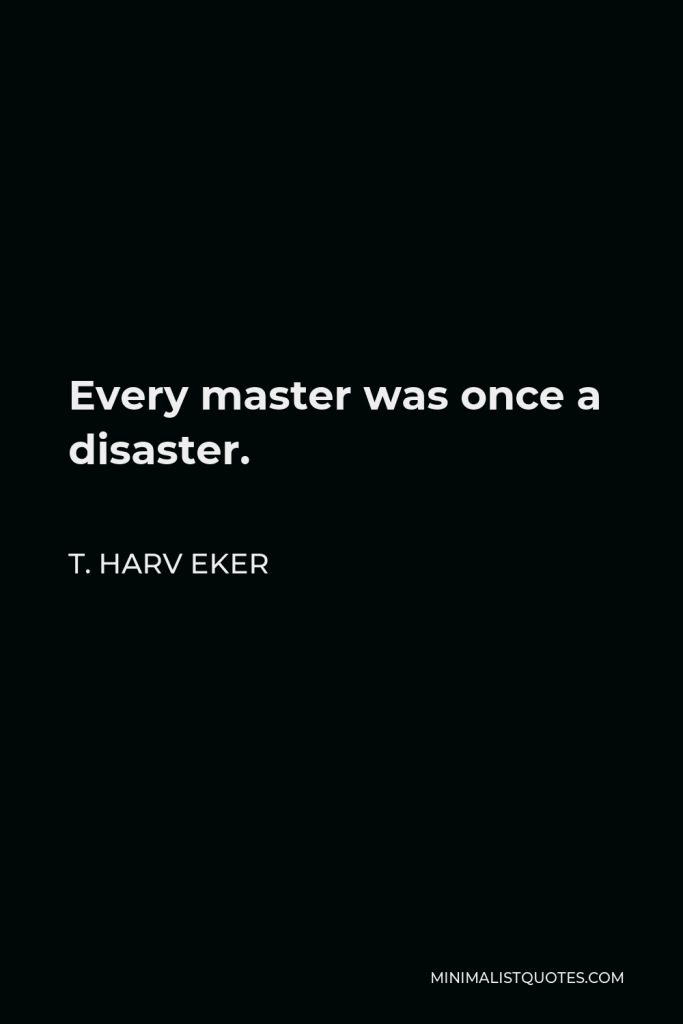

Every master was once a disaster.
T. HARV EKER -





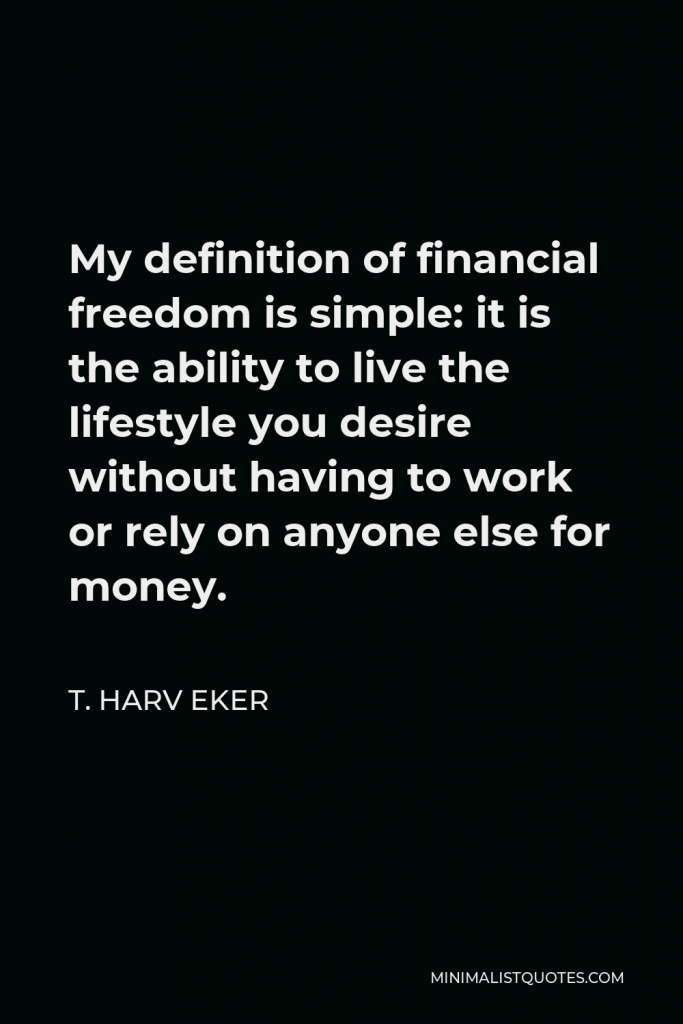

My definition of financial freedom is simple: it is the ability to live the lifestyle you desire without having to work or rely on anyone else for money.
T. HARV EKER -





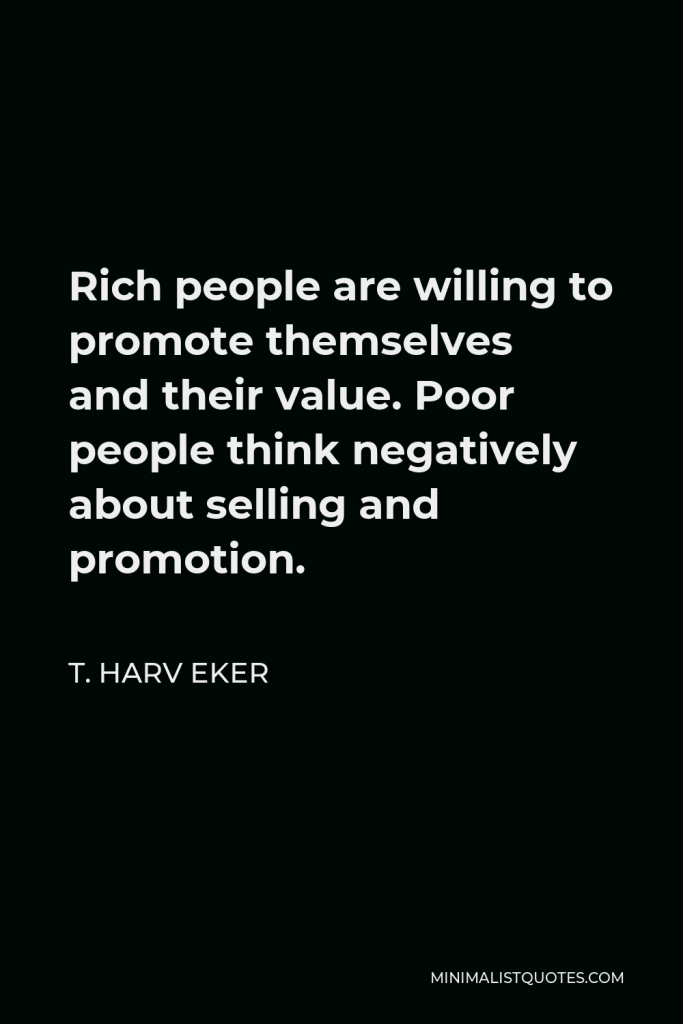

Rich people are willing to promote themselves and their value. Poor people think negatively about selling and promotion.
T. HARV EKER -





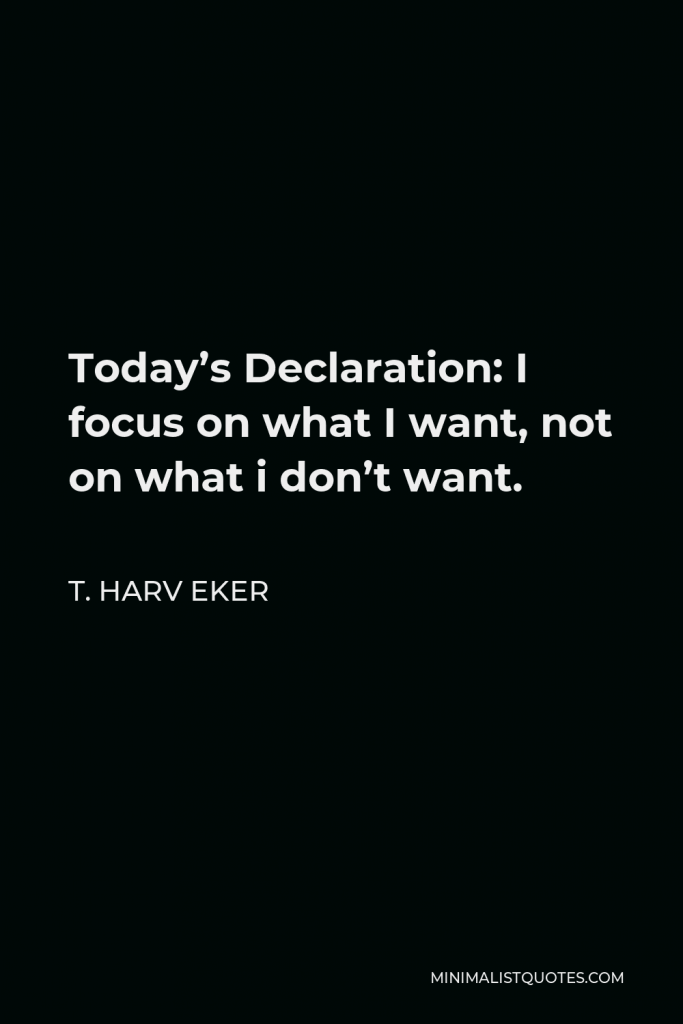

Today’s Declaration: I focus on what I want, not on what i don’t want.
T. HARV EKER -





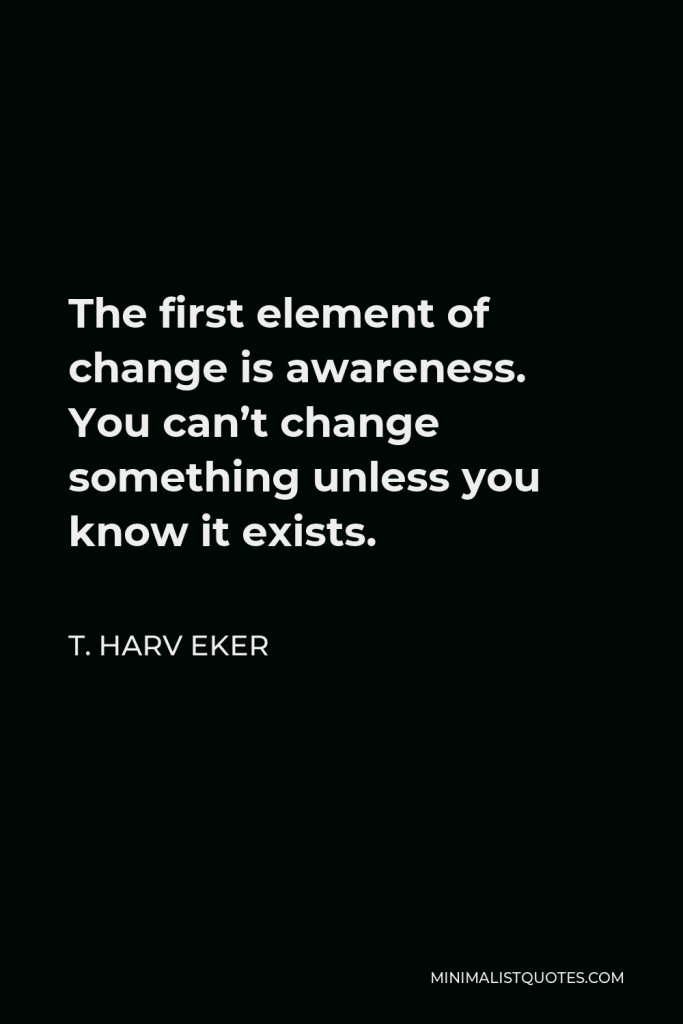

The first element of change is awareness. You can’t change something unless you know it exists.
T. HARV EKER -





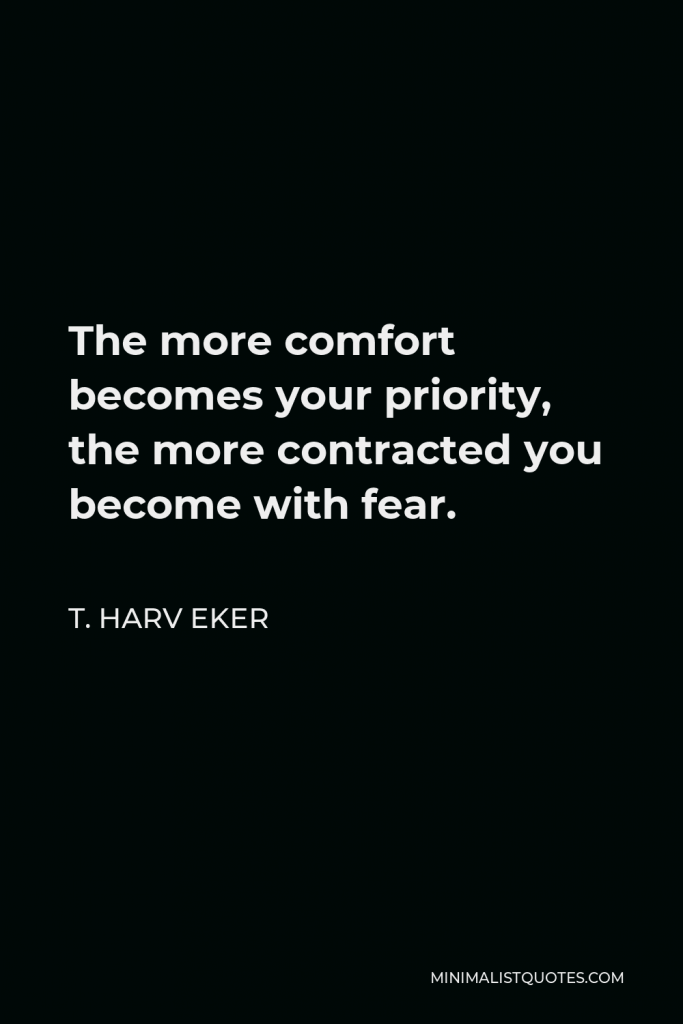

The more comfort becomes your priority, the more contracted you become with fear.
T. HARV EKER -





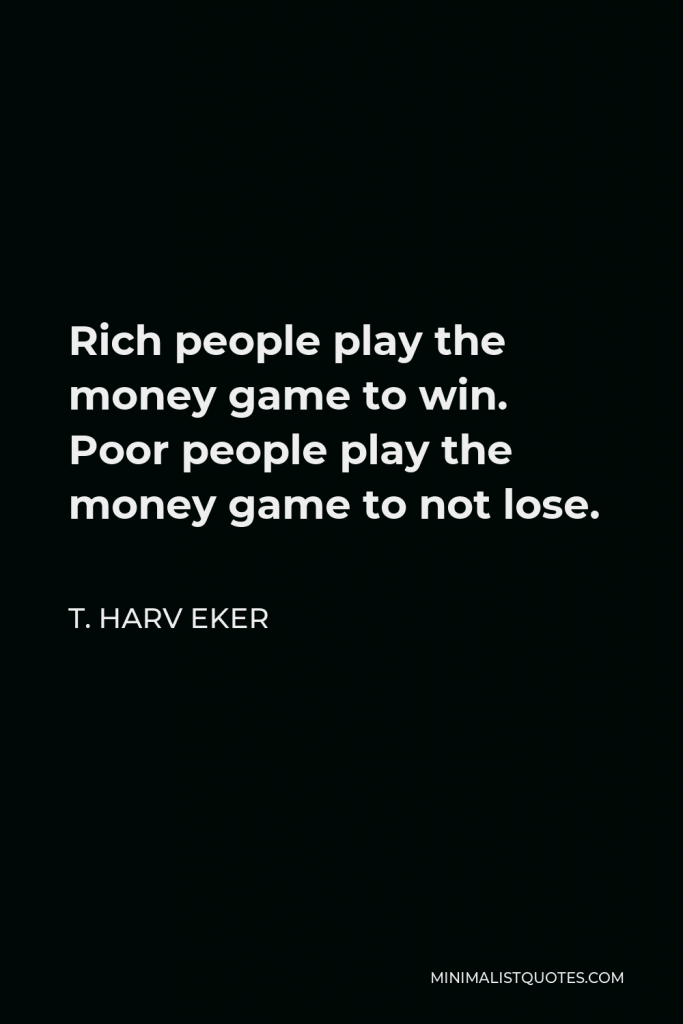

Rich people play the money game to win. Poor people play the money game to not lose.
T. HARV EKER -





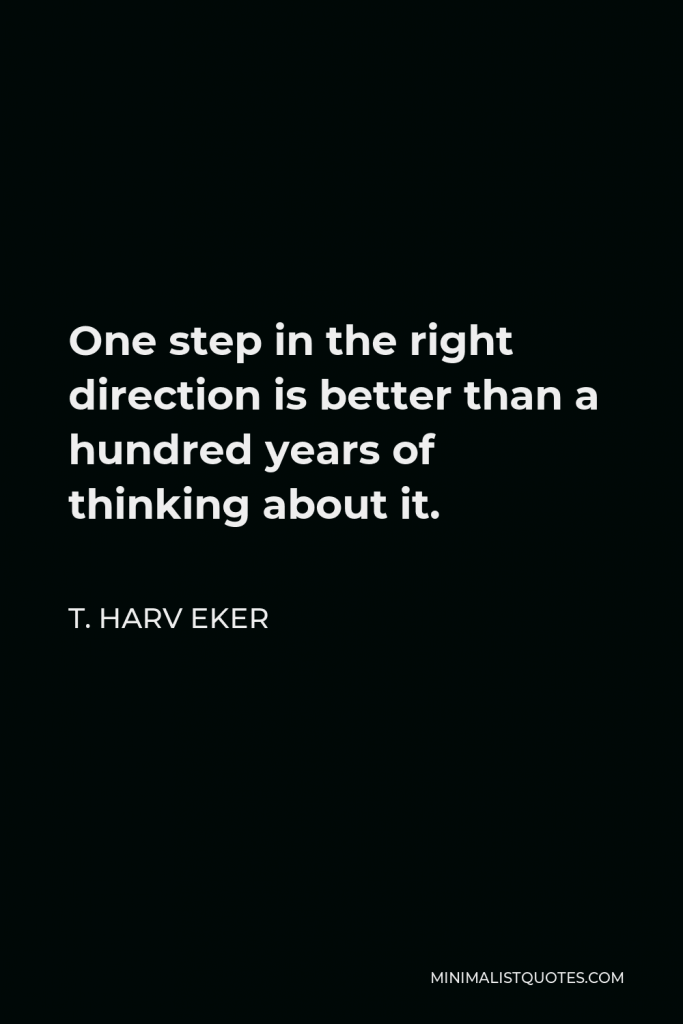

One step in the right direction is better than a hundred years of thinking about it.
T. HARV EKER -





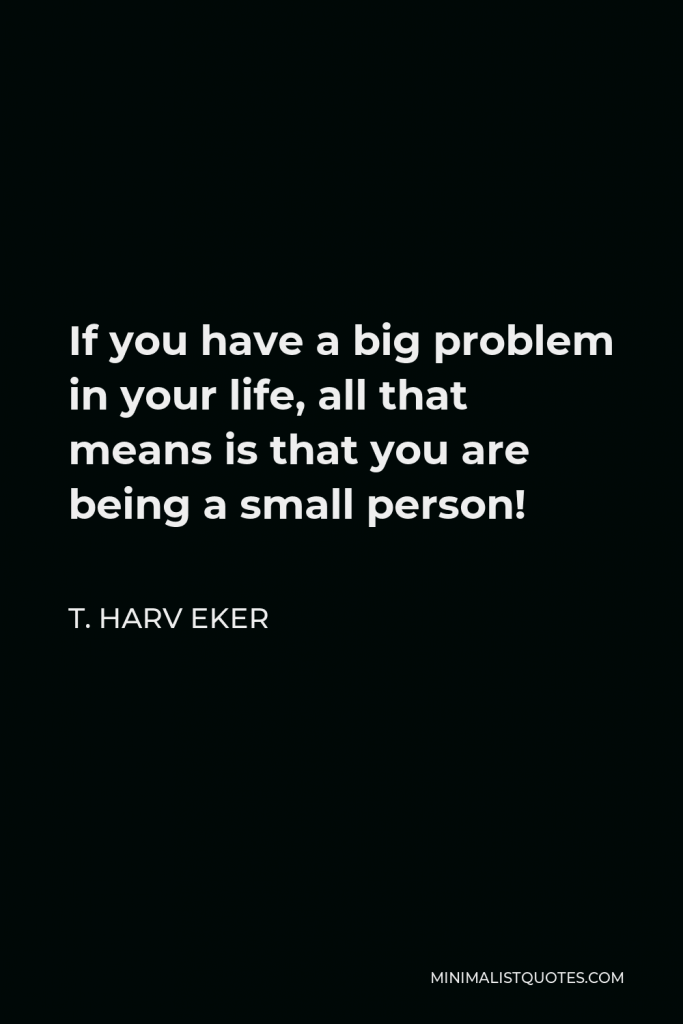

If you have a big problem in your life, all that means is that you are being a small person!
T. HARV EKER -





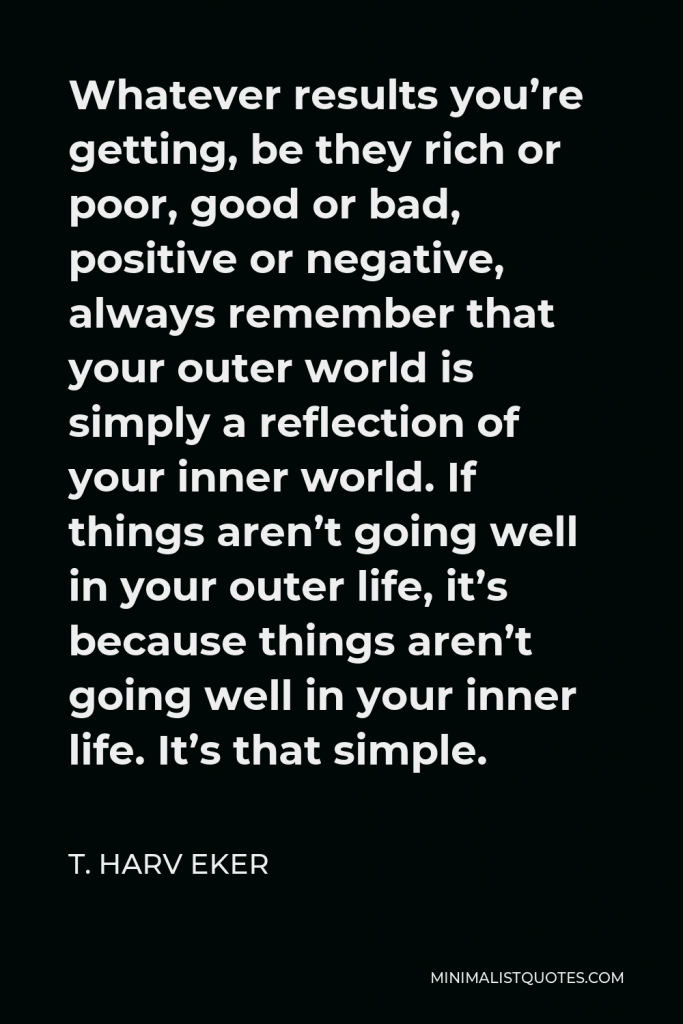

Whatever results you’re getting, be they rich or poor, good or bad, positive or negative, always remember that your outer world is simply a reflection of your inner world. If things aren’t going well in your outer life, it’s because things aren’t going well in your inner life. It’s that simple.
T. HARV EKER -





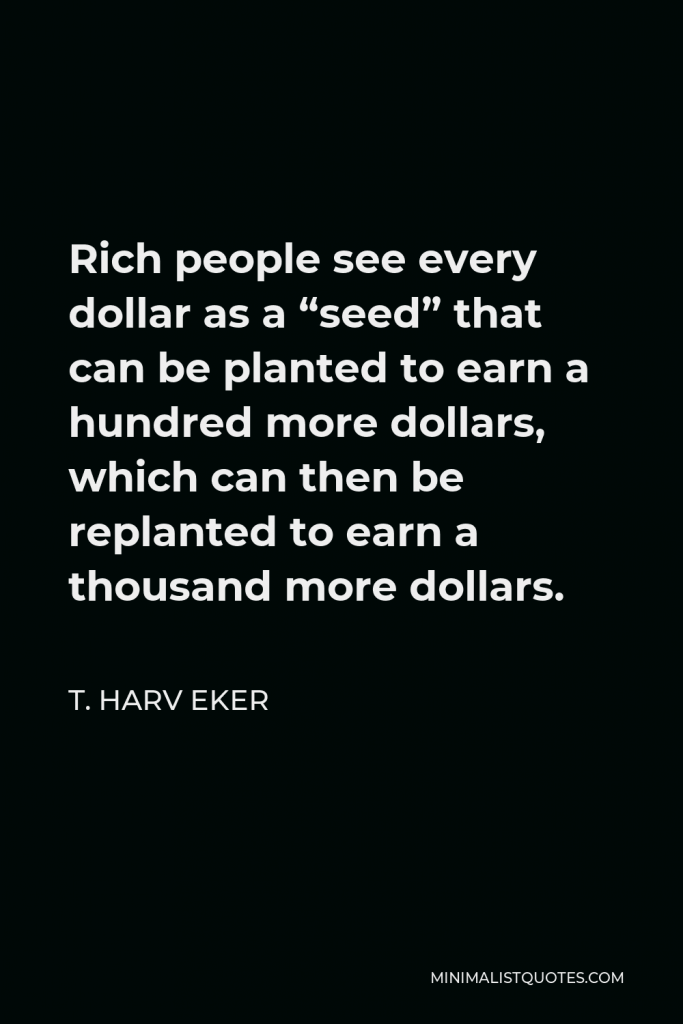

Rich people see every dollar as a “seed” that can be planted to earn a hundred more dollars, which can then be replanted to earn a thousand more dollars.
T. HARV EKER -





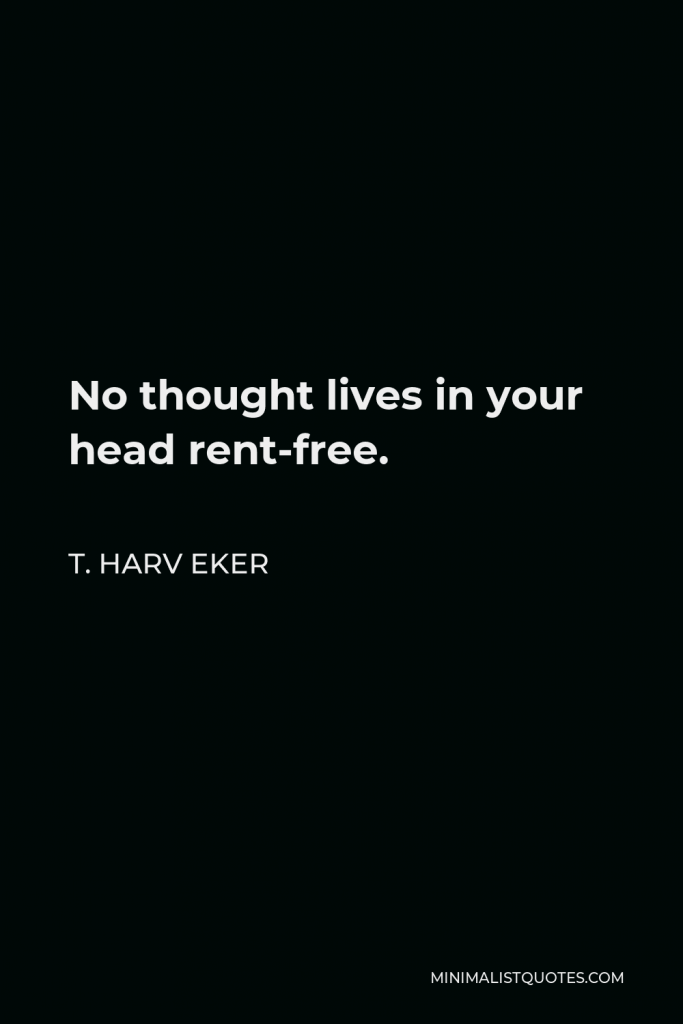

No thought lives in your head rent-free.
T. HARV EKER -





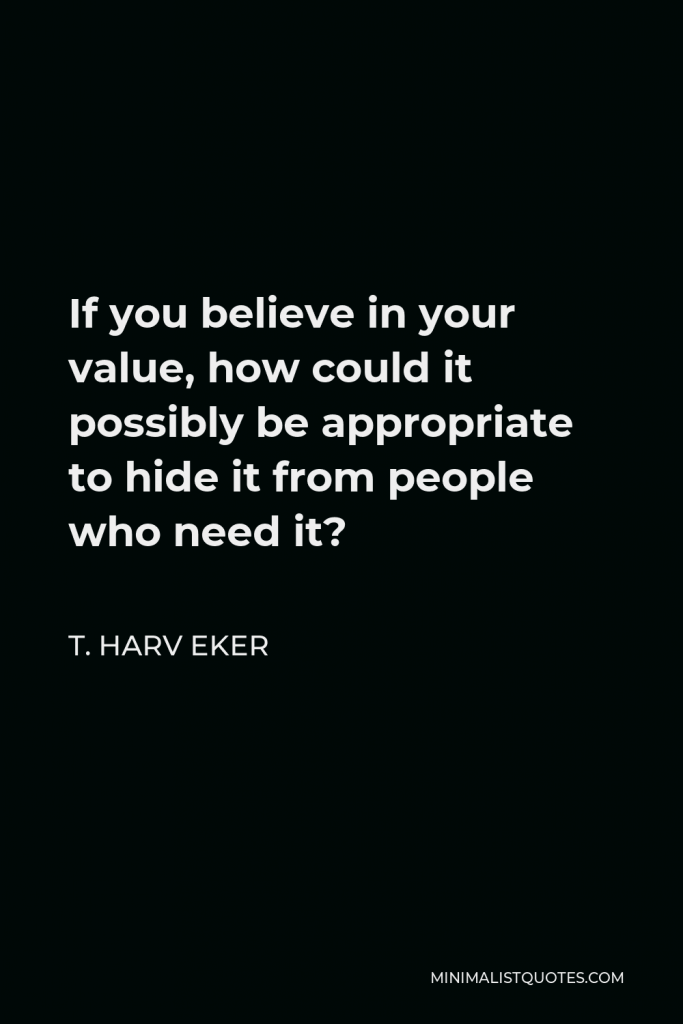

If you believe in your value, how could it possibly be appropriate to hide it from people who need it?
T. HARV EKER -





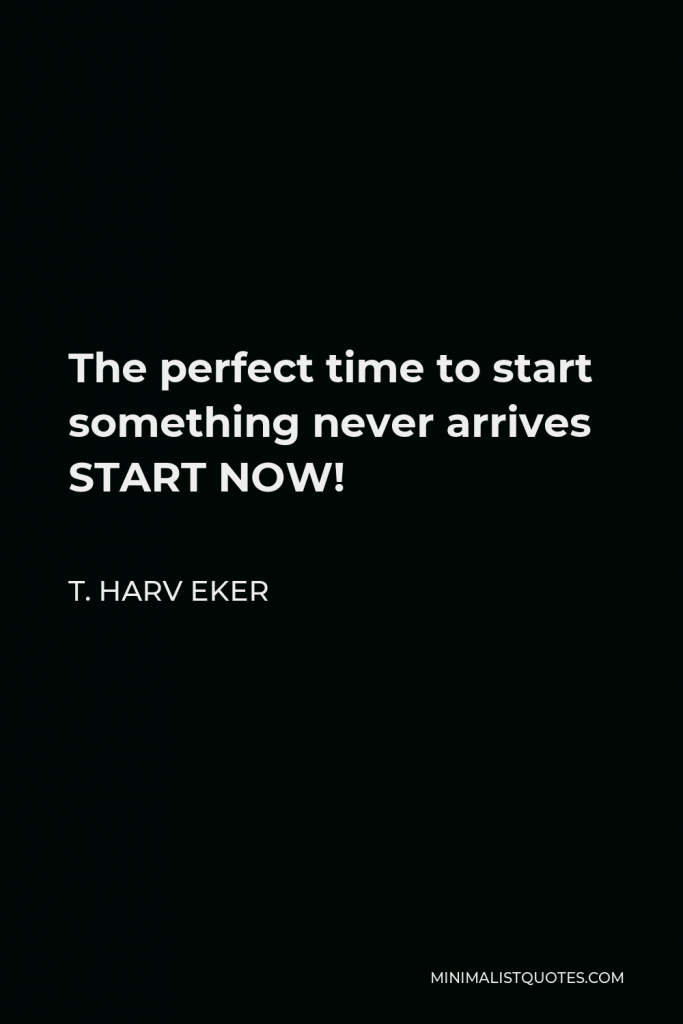

The perfect time to start something never arrives START NOW!
T. HARV EKER
